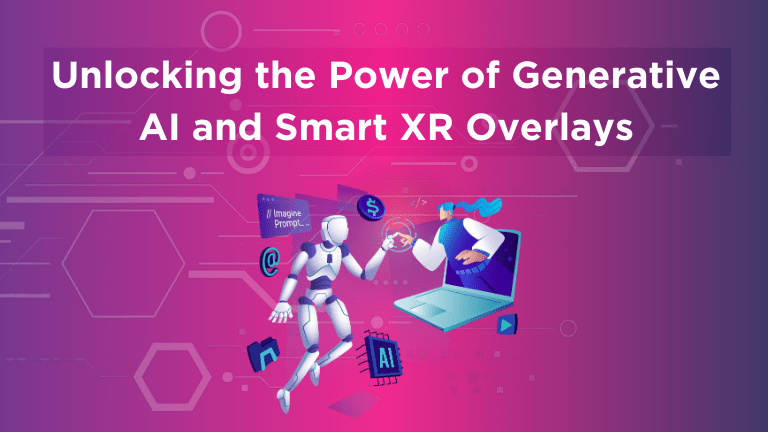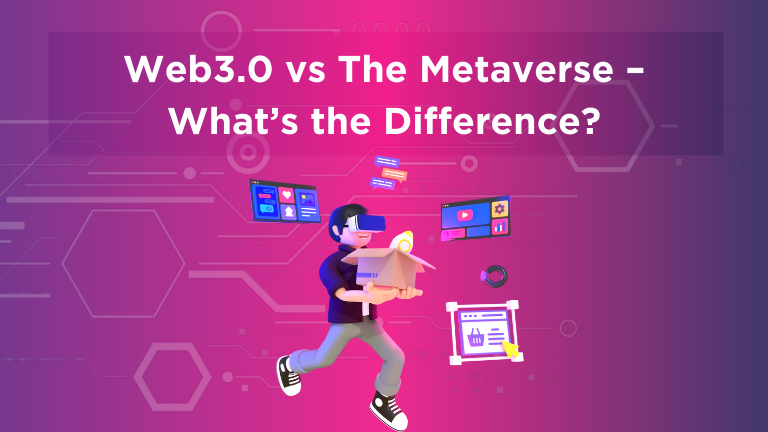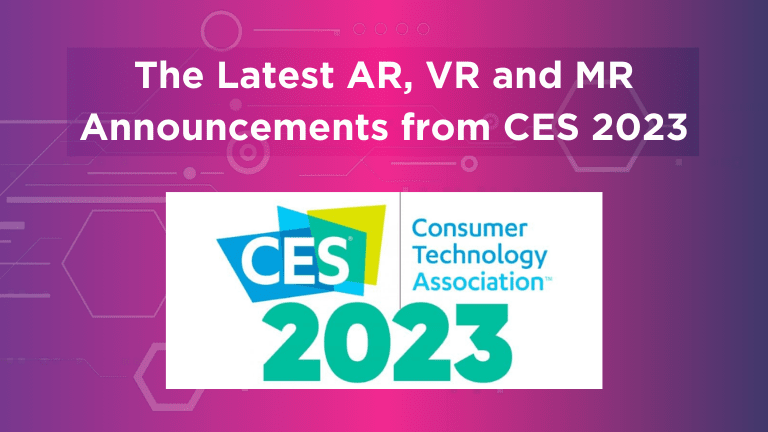The new job roles at the convergence of XR and AI
It’s no secret that Artificial Intelligence has become one of the driving forces behind the rapid evolution of digital transformation in the modern world. AI has impacted virtually every industry, from healthcare and finance to transportation and retail.
As the AI solutions available for companies to access today continue to grow more advanced, complementary technologies are benefiting too. Extended Reality (XR), which encompasses every aspect of VR, AR and MR experiences, is one of the key areas benefiting from the rise of intelligent technologies.
With AI solutions, companies can make immersive experiences even more powerful. They can leverage solutions like machine learning, natural language processing, and generative AI to transform the way people interact with virtual content. Indeed, the convergence of AI and XR is paving the way for endless new opportunities for developers and investors.
However, it’s also influencing the job market. Consequently, 58% of employers believe AI and XR will converge to create more job opportunities.
The Convergence of AI and XR
The concept of extended reality has evolved rapidly in recent years. In fact, by 2030, experts believe the value of the market will reach more than $345 billion. Part of the reason for this rapid growth is that developers and innovators are accessing complementary technologies to improve the performance of their XR solutions. Namely, 5G, the cloud, and even edge computing have all contributed to XR growth.
Notably, Artificial Intelligence is perhaps the most powerful complementary technology for XR on the modern market. With AI, companies can experiment with more intuitive user experiences on AI headsets and platforms, eliminating controllers in exchange for solutions that can detect user eye movement or gestures. For instance, we’re seeing examples of this now with Apple Vision Pro’s approach to spatial computing.
Advancements in machine learning algorithms and computer vision enable AI systems to better understand and interact with virtual environments in XR technologies. This allows for more realistic, interactive experiences. AI solutions can even analyse user data, and adapt XR content to specific needs, preferences, and abilities dynamically, leading to better training and gaming experiences.
As the interest in the “metaverse” continues to grow, the link between XR and AI will likely grow more profound. Currently, companies are already leveraging AI technologies to help with the creation of XR metaverse assets, from unique characters to landscape models.
Generative AI solutions can even assist developers in writing code for dynamic “non-playable characters”, or produce visuals and audio with nothing but a natural language text input. Undoubtedly, the fusion of AI and XR will empower artists, designers, and developers to construct more immersive worlds that respond naturally to human interactions, and consequently, improve overall user experiences.
The Rise of New Job Opportunities in AI and XR
This influx of AI in the extended reality world could present an excellent opportunity to today’s job seekers, particularly those with an interest in metaverse and next-generation technologies.
Previously, the evolution of AI algorithms has caused concerns for employees, with some believing that generative tools will one day replace them. However, the reality is that while AI may eliminate some repetitive roles, it’s creating a host of new job opportunities too.
Specifically, in the UK alone, more than half of British employers say they believe artificial intelligence will improve the employment landscape in the next 2 years. These forward-thinking business leaders believe AI and XR won’t just help to retrain and upskill existing employees, but also lead to the introduction of new job titles for those with the right technical skills.
Already, we’re seeing AI make its way into a number of extended reality roles. XR developers are using AI to create more intuitive spatial computing experiences. Meanwhile, XR research developers are leveraging AI as a way to collect valuable data about customers.
Subsequently, there are even new jobs emerging in the AI/XR field, such as:
- XR UX/UI Developer: Developers for XR user interfaces and experiences are increasingly relying on XR technologies – these industry professionals are using generative AI, machine learning, and spatial computing to improve user interactions with virtual content.
- AI XR Interaction Designer: These professionals are responsible for creating AI-driven interactions with characters and environments in the metaverse and XR environments. They use natural language processing, user behaviour analysis, and AI design skills to create more personalized interactions within extended reality software.
- Immersive AI Developer: The role of an Immersive AI developer involves leveraging model development and XR development skills alongside AI to create immersive experiences. They use a combination of intelligent tools to build intelligent, context-aware interactions, which boost feelings of immersion in an extended reality environment.
- AI XR Research Scientist: AI XR Research scientists conduct research into the opportunities emerging at the intersection of AI and extended reality. They use in-depth research strategies, prototyping, experimental design, and data analysis to uncover new opportunities for creating memorable user experiences in the digital world.
- XR AI Product Manager: Product Managers in the XR/AI world oversee the development of XR applications which leverage artificial intelligence technologies. They rely on a combination of product management skills, and business strategy knowledge to guide teams towards new opportunities.
Building New Careers with XR and AI
Extended reality has already emerged as an incredible environment for technology-driven professionals. The influx of new innovations in mixed, augmented, and virtual realities has produced a host of high-paid roles for ambitious candidates to explore.
As XR continues to converge with other forms of transformational technology, the number of opportunities for today’s industry professionals will continue to grow. Infusing extended reality experiences with artificial intelligence significantly improves the immersive interactions users can have with these evolving technologies.
With the right AI initiatives, companies can improve user interactions, enhance the impact of their extended reality content, and drive better results for consumers. Yet, these companies need the right talent to bring the two concepts together. As a result, we can expect to see a higher demand for professionals with a deep knowledge of both the AI and XR worlds in the years to come.




